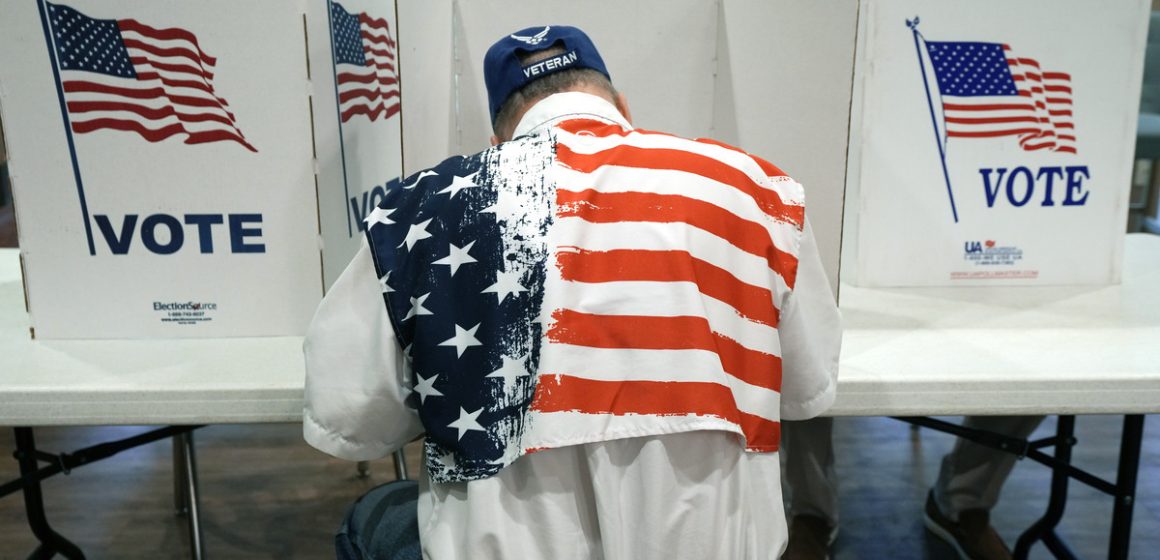The Fifth Circuit Court of Appeals on Friday evening ruled that a Mississippi state law allowing ballots to be received and counted after Election Day is in violation of federal law, in what could amount to a last-minute rule change for the upcoming general election.
“Congress statutorily designated a singular ‘day for the election’ of members of Congress and the appointment of presidential electors,” the appeals court opinion begins. “Text, precedent, and historical practice confirm this ‘day for the election’ is the day by which ballots must be both cast by voters and received by state officials. Because Mississippi’s statute allows ballot receipt up to five days after the federal election day, it is preempted by federal law.”
The upshot, however, of the ruling is currently unclear.
While the three-judge panel of Donald Trump-appointed circuit judges invalidated the law in question, they left the issue of “remedies” up to the district court judge who previously upheld the statute.
The disputed Mississippi statute was passed during the height of the COVID-19 pandemic and allows election officials to count ballots “postmarked on or before the date of the election and received by the registrar no more than five (5) business days after the election.”
Magnolia State legislators amended the statute but kept the deadline — allowing private companies as well as the U.S. Postal Service to effectuate the delivery of potentially post-Election Day ballots.
Now, the appellate court says that rule is a bridge too far.
The 22-page opinion finds that an “election” refers “to the combined actions of voters and officials.” In service of this point, the judges take issue with the state’s argument about when and how a ballot is cast.
“The State’s problem is that it thinks a ballot can be ‘cast’ before it is received,” the opinion reads. “What if a State changes its law to allow voters to mark their ballots and place them in a drawer? Or what if a State allowed a voter to mark a ballot and then post a picture on social media? The hypotheticals are obviously absurd. But it should be equally obvious that a ballot is ‘cast’ when the State takes custody of it.”
The court goes on to explain that elections are about “final” choices:
In other words, the Fifth Circuit says the true mark of an election is a deadline for receiving ballots. And, the court notes, the federal deadline for selecting presidential electors and members of Congress has been fixed as “the Tuesday after the first Monday in November” since 1845.
Mississippi, for their part, argued in favor of a so-called mailbox rule — a rule which would allow the deadline to be met so long as the document subject to the deadline is mailed on the date in question.
The conservative appeals court categorically rejected this suggestion for ballots by pointing to the non-court-authored existence of mailbox rules in other areas of law.
“Mississippi next urges us to adopt a new mailbox rule: Once a voter casts her ballot, her ‘election’ of a candidate is complete,” the opinion goes on. “Such rules are embraced in other areas of the law. For example, a contract is formed when the offeree’s acceptance is ‘put out of [his] possession, without regard to whether it ever reaches the offeror.’ Federal tax law adopts such a mailbox rule. But voting is not a contract or tax return. So the fact that mailbox rules are authorized in other areas of law is at best irrelevant. And at worst, it shows that Congress knows how to embrace a mailbox rule when it wants to do so.”
In sum, the appeals court found that federal law sets a clear deadline for a state to receive ballots: Election Day itself.
“Federal law requires voters to take timely steps to vote by Election Day,” the court concluded. “And federal law does not permit the State of Mississippi to extend the period for voting by one day, five days, or 100 days. The State’s contrary law is preempted.”
The underlying lawsuits in the matter were filed by the Republican National Committee and the Libertarian Party of Mississippi. In late July, the U.S. District Court for the Southern District of Mississippi ruled in the state’s favor on a motion for summary judgment.
Now, the lower court judge who oversaw the case will be tasked to craft a solution in line with the Purcell principle — the notion that courts should be cautious and hesitant to make substantial changes to election laws in the time period just before an election.
“Today’s decision says nothing about remedies,” the opinion reads. “We decline to grant plaintiffs’ initial request for a permanent injunction, which they have not renewed before this court. Instead, we remand to the district court for further proceedings to fashion appropriate relief, giving due consideration to ‘the value of preserving the status quo in a voting case on the eve of an election.’”
Have a tip we should know? [email protected]
Note: Thank you for visiting our website! We strive to keep you informed with the latest updates based on expected timelines, although please note that we are not affiliated with any official bodies. Our team is committed to ensuring accuracy and transparency in our reporting, verifying all information before publication. We aim to bring you reliable news, and if you have any questions or concerns about our content, feel free to reach out to us via email. We appreciate your trust and support!


